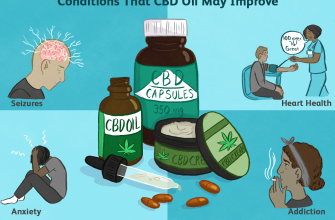Basic research shows that CBD has a beneficial effect in the treatment of type 1 diabetes, due to the fact that CBD prevents complications that provoke the disease, such as damage to blood vessels and veins (Weiss 2006, Stanley 2013, Ohki 2010 , Liu 2009).
Scientists at the Hadass University Hospital in Jerusalem investigated the effects of CBD on the development of diabetes (type 1 diabetes) in mice with a genetic predisposition to develop the disease (Weiss 2006). The so-called GOD (non-obese) mice developed insulin deficiency from 4 to 5 weeks of age, which developed into diabetes at 14 weeks of age. Insulin deficiency is inflammation of the cells in the pancreas that produce the hormone insulin, and diabetes (type 1 diabetes) occurs as a result of damage to these cells. GCD mice aged 6 to 12 weeks, which administered 10 to 20 CBD injections daily (5mg CBD per kilogram of live weight) showed significantly lower rates of diabetes by 30% than the rest of the untreated mice, which had an 86% rate of type 1 diabetes.
Mice that developed diabetes despite CBD administration had their disease progression significantly halted. In NOD mice with a genetic predisposition to develop diabetes, the level of cytokines in the blood, which are responsible for the spread of inflammation (interferon-gamma and interferon-alpha), as a rule, is significantly higher than the average statistical values. When taking CBD, a significant decrease in the level of both cytokines (more than 70%) was achieved.
Subsequently, a study was conducted on 2 groups of mice, in which one group of 5 mice was not given CBD, and the other 5 mice were injected with CBD for 26 weeks. The following was found: in the first group, diabetes developed in all five mice. In the second test group, which was injected with CBD, only 2 out of 5 mice developed diabetes.
Scientists have come to the conclusion thatthe introduction of CBD can prevent the development of diabetes – type 1 diabetes”, as well as other autoimmune diseases. They also noted that a large number of patients who were diagnosed with type 1 diabetes had a sufficient number of insulin-producing cells at the time of diagnosis, and therefore such patients are eligible for CBD treatment.
Other studies have noted that the increased content of endocannabinoids in the body leads to a change in the function of blood vessels in the negative and positive directions when type 2 diabetes and add that CBD can be used as improved endothelin vasorelaxation – by dilating blood vessels (Stanley 2013).
Scientists also note that CBD is effective in the treatment of retinal damage due to diabetes – diabetic retinopathy (Liu 2009).
Studies published by scientists at the US National Institutes of Health at Bethesda show that CBD reduces cardiovascular problems, stress, seizures, aging and cell death caused by diabetic cardiomyopathy (Ohki 2010). The scientists concluded that the results obtained, along with the safety and high tolerance of CBD by the human body, indicate high therapeutic potential of CBD in diabetic and cardiovascular diseases.





